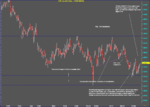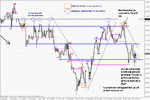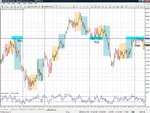FW, you are correct in what you said about being dumb money. I did think about the statement after i posted it, how could i have ever thought anything else.🙂
Cheers.
PS. I feel so much more vunerable and insecure about my trading today. He he he.
No need to feel like "dumb money". The public has one major advantage over the pros - the public doesn't HAVE to trade.
If a currency is threatening economic conditions or the markets are in freefall, a government or country HAS to intervene. They have no option in serious cases but to come in as a buyer or seller.
Likewise with producers. They have to hedge their inventory to offset their risk.
The same with dealers and floor traders. They HAVE to take the other side of customer orders. And they don't always get it right.
In 1980 many producers and floor traders went belly up during the massive rise in Gold and Silver. Producers who had the physical metal and went short futures, were screwed as the more the prices moved up, the more margin they needed and to make matters worse, they receive no credit for holding their physical goods. This is a very serious problem.
Imagine you had £1m in Gold to sell and I agreed to buy it off you in 3 months time. So the only logical thing to do if you are happy with £1m for your holding is to sell the futures so that the price you will get is fixed (or as close as can be).
If the futures go down, you will make money on the short side to offset the lower price you will get when you come to sell your physical holding.
However, if gold starts to go up massively, although you will get more money when you sell, you suddenly have a broker (via the exchange) demanding money to keep your short position going. One big hedger of gold in the run up, had to pay $10m PER DAY just to hold his short position. Now if you don't have the capital, you are in a whole lot of trouble.
But forget even the hedgers. The locals on the floor at the time were also massively caught as prices went up so fast they never had time to get out of their short positions at a profit.
So what I am trying to say is that even the pros that are right in the thick of the action cannot safeguard against everything and are not always right. They just have TRICKS.
It amazes me that the biggest advantage that the public has is this ability not to have to trade and to wait for only the best opportunities before making there commitment and yet they squander this by over trading in order to make money faster. With the net result that they lose money faster.
Its interesting that we have mentioned time because my favourite quote is from Jesse Livermore: "Time is not money. Time is time and money is money".
We are ingrained from an early age that the more time you spend working at something the more money you make. The more hours you work the more you get paid etc.
When I teach new traders they are always dismayed at how few and far between the really good signals are. "What?!", they say, "you mean I have to sit here for a few days just waiting?! But there are massive moves every day...just look at gbp/jpy it's gone up 200 pips and then back down 200 while we've been talking..."
This concept is totally wrong in trading. Yes you do have to put many hours in at the beginning but once you know what you are doing, you can make a years salary in 10 minutes. Then sit back and do nothing for days, weeks, months until the next opportunity strikes.
Time is just the interval until the next trade. It has nothing to do with how much you will earn.



